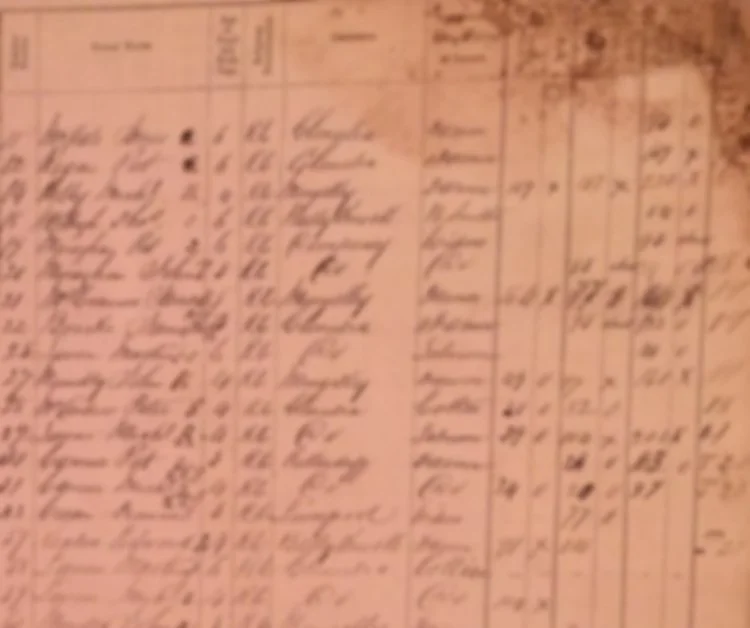
The School Collection
National School Records Collection (NSRC)
National School registers and roll books
National school registers are a particularly valuable source of genealogical information, giving details of the pupils' home addresses, parents' occupations and an account of pupils' academic progress and attendance record. However, they are but part of the set of records that schools had to maintain for the Dept. of Education (formerly the Education Commissioners, pre-Irish independence), i.e.:
Registers
The registers provide details of the pupil's name, date of birth, religious affiliation, residence, occupation of parent or guardian and also details of the last national school attended.
Daily Report Books
The daily report books provide details on attendance at the school – class by class and day by day. These note the discrepancies between the numbers listed on the rolls and the numbers in actual attendance. They also list grants made to the school.
Roll Books
The roll books list the attendance of named pupils. They contain the date of birth of the pupil, the date when entering the relevant class, the number of the pupil within the school and within the relevant class.
While these are the most common of the surviving records, other ancillary books or documents also exist, including; District Inspectors' Observation Books, Organisers' Observation Books, Corporal Punishment Books, Religious Instruction Certificates (for members of the Church of Ireland) and Special or Supplementary Roll Books.
All participating National Schools has free on-site access to our National School Records Collection by means of our partnership with Ancestry.
In partnership with Ancestry.com we are publishing the largest online database of National School attendance records in Ireland. Covering mostly the counties of Mayo and Sligo, this is a searchable index of school registers, roll books, supplementary rolls and exam rolls, with pupil attendance records going back to 1850s, all the way to 1929. Under Data Protection rules and GDPR, more recent records cannot be published at this time.
Please use the link below to learn how your participating school may become involved in this exciting project.

